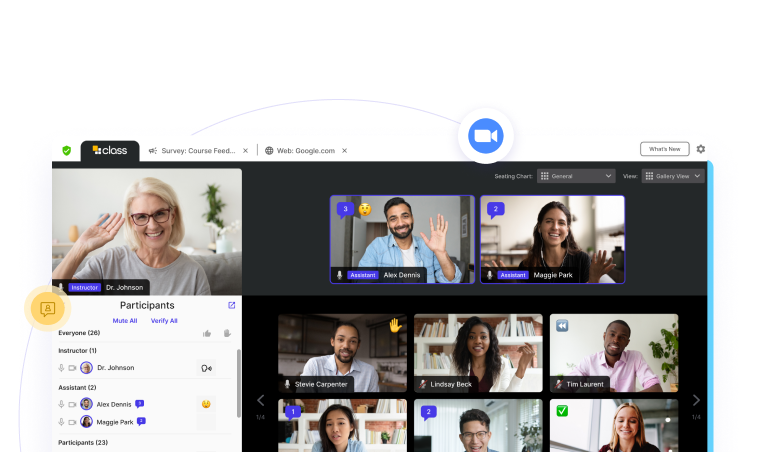
Bob Cronin boasts a 38-year tenure in the sales and sales performance realm, with deep expertise across the corporate learning and development space, and a rich background in consulting, sales training, and EdTech tools.

Bob Cronin boasts a 38-year tenure in the sales and sales performance realm, with deep expertise across the corporate learning and development space, and a rich background in consulting, sales training, and EdTech tools.

As artificial intelligence (AI) continues to expand into every industry, learning and development professionals are in a unique position to not only integrate this technology into their day-to-day work, but also to improve workers’ understanding of how it impacts their own capabilities. With this in mind, we recently convened an expert panel discussion to explore the role AI is playing in learning and development, as well as company culture.
While many have looked to AI and its integration into companies as a plug-and-play solution that is simply “tacked on,” the reality is that AI’s utility is best captured when integrated with a deep wealth of industry knowledge. Anees Shaik, Head of Technology at BCGUniversity, explains, “It's not just a productivity tool. It's a tool that can expand what you can do. And that is specifically more true for people who are experts in their field and know exactly what they’re doing with specific tasks. The most gains are going to come in areas where AI is being applied along with the skills that people have expertise in.”
Kedar Vashi, Former Chief Learning Officer for Coca-Cola India, echoes this sentiment that the human element is crucial to proper AI integration, adding, “AI will shape the way we learn the skills for the future, because, as we have seen, the future changes so rapidly and so unpredictably…But how we learn can definitely be supported by AI. If I were to say what skills this AI revolution requires people to learn, ironically, it is to learn how to leverage AI correctly. I think that is a skill that all learning professionals and everyone has to learn because there is an ocean out there, and every day new tools are coming out. The challenge is how do we make sure that the artificial intelligence tools become the right support or create the right synergy with human intelligence to ultimately create the workforce for the future?”
Shaik has seen this concept in real time via studies at his organization: “23% of those people [in the study] did worse than people who didn't use any of the generative AI tools. But, in comparison, when we gave the tools to AI data scientists or engineers who are very skilled in their craft, and they used Gen AI, they were not only able to increase their productivity and efficiency, but they were able to do things that they have never done before. Or in other words, they were able to increase their aptitude and be able to do new tasks that they hadn't done before.”
As noted above, many companies, in an effort to rush into the AI frenzy, have created bolt-on features that, at best, are minimally distracting and, at worst, actively work against the company’s goals. For learning and development professionals, merging the human element with efficiency capabilities is crucial—this also means that adoption requires that AI capabilities are intentionally and effectively integrated.
Vashi speaks directly to this priority, pointing out, “We need to be able to offer [workers] AI tools that can satisfy their needs. In our enthusiasm to introduce many interesting AI tools, we sometimes end up overlooking the way people learn. Integration of AI has to take into account the organization’s culture, and ‘How do we make sure that any AI tools are a means to something and not an end in itself?’ There's so much noise happening. [AI integration] has to be done in a very collaborative way with human intelligence. If it is not allowing a person to do what [they] need to do and make it efficient, make it quick, I think there is no way it is going to work.”
In addition to the importance AI plays in worker efficiency and capabilities, a company’s leadership must also have a full grasp of how this technology can help or hinder short-term and long-term goals. As more logic-driven work is streamlined by artificial intelligence, Vashi sees that leaders will need to be able to display soft skills and emotional intelligence to ensure a balance remains, noting, “What I have seen is that, while AI will make people more efficient and will help them do the ‘left brain’ things much more efficiently with much less scope of error, at the same time it will also put a premium on the softer skills or the human relationships things like empathy.”
Shaik also underscores how AI will play a role in different levels of an organization in various ways and leadership must be able to understand and have a strategy that encompasses this, pointing out, “Somebody at the senior management doesn't have the same use case for AI as somebody in the C-suite who is pretty much setting the strategy and vision for the corporation. Somebody in a management level is trying to manage both the expectations from above and getting something done, versus somebody who's actually using it to do that stuff and how to manage those people. I think the way leadership upskilling is going to happen is this is going to become an integral part of your upskilling.”
Artificial intelligence is a new reality for learning and development professionals, as well as the organizations they operate within. As noted above, this doesn’t mean deep expertise will become irrelevant, rather it enhances the importance of allowing those individuals to become even more efficient and unlock even deeper capabilities. Additionally, the human element, as well as many of those soft skills AI has shown less advancement in to-date, remains highly important not just for workers, but leadership, as well.
Is your company integrating AI with intentionality and balance? Are you looking for ways to push your team’s capabilities while unlocking a deeper analytical understanding of engagement and collaboration? Now is a perfect time to reach out to a Class representative to discover how your team can take its collaboration, training, upskilling, and reskilling to the next level.

Bob Cronin boasts a 38-year tenure in the sales and sales performance realm, with deep expertise across the corporate learning and development space, and a rich background in consulting, sales training, and EdTech tools.

Bob Cronin boasts a 38-year tenure in the sales and sales performance realm, with deep expertise across the corporate learning and development space, and a rich background in consulting, sales training, and EdTech tools.
Get our insights, tips, and best practices delivered to your inbox

Sign up for a product demo today to learn how Class’s virtual classroom powers digital transformation at your organization.

Features
Products
Integrations